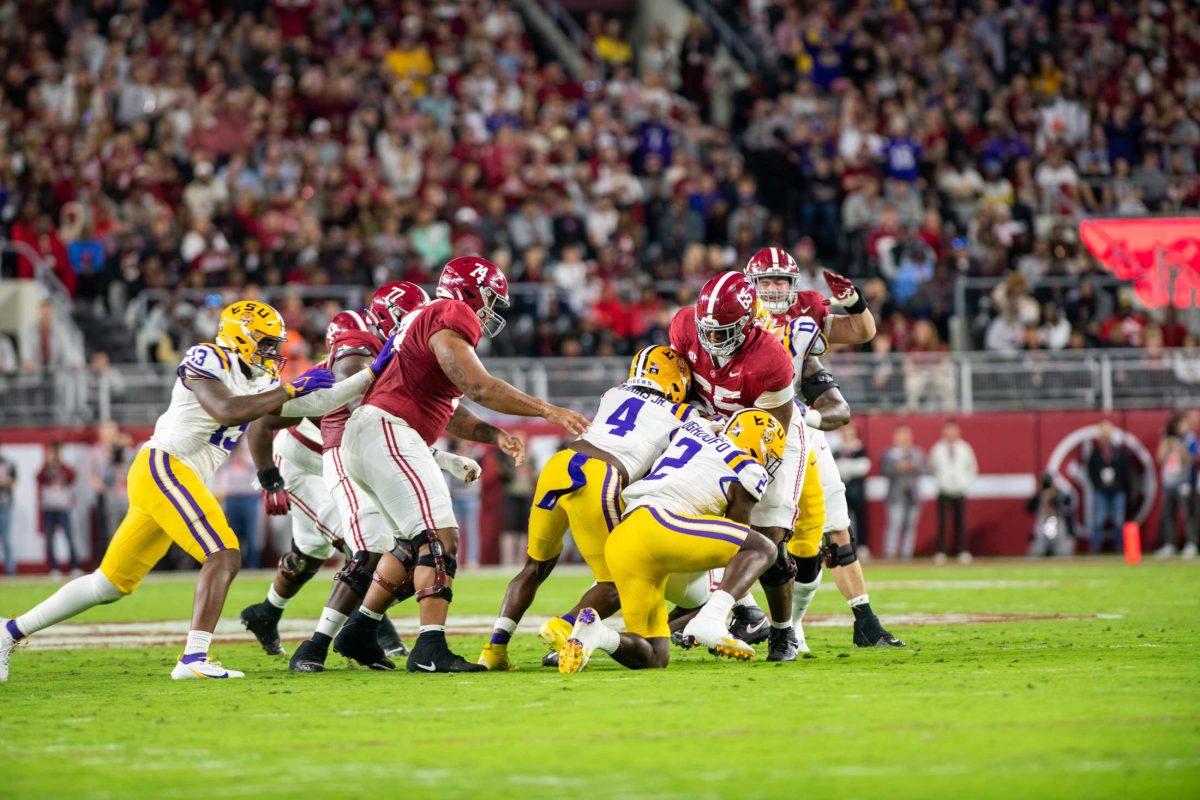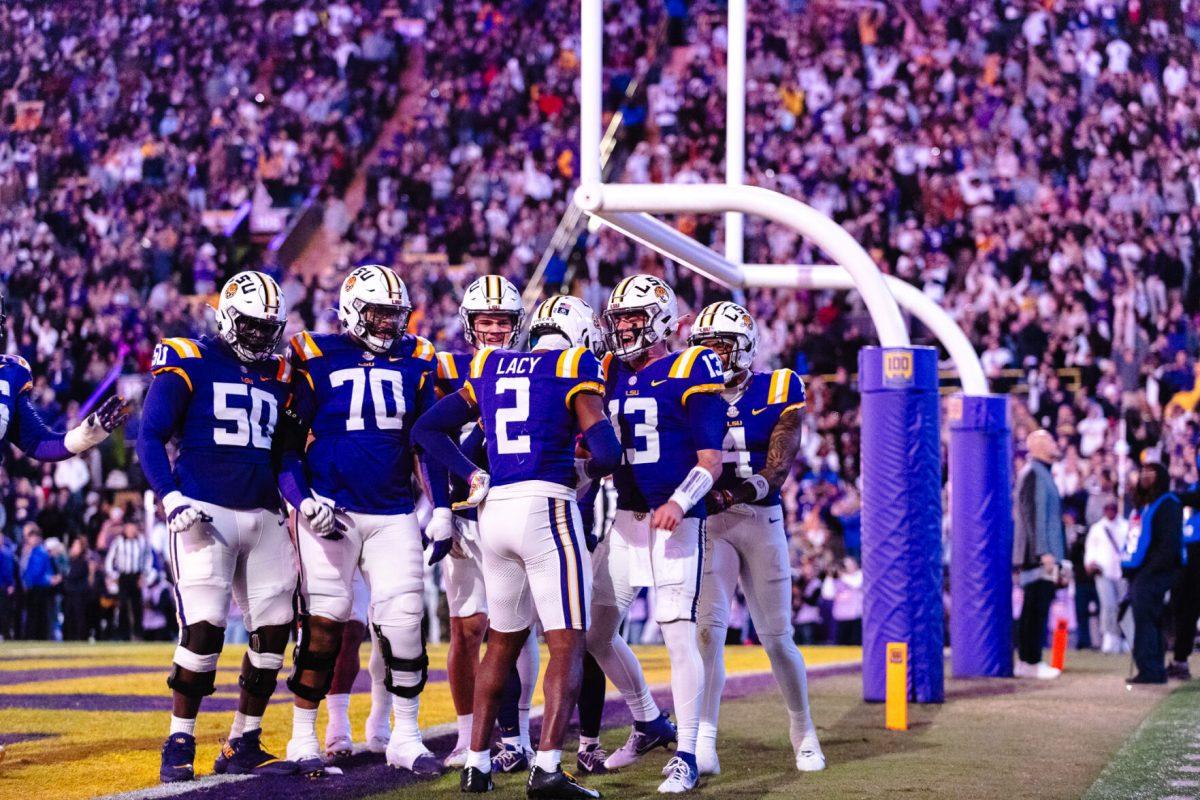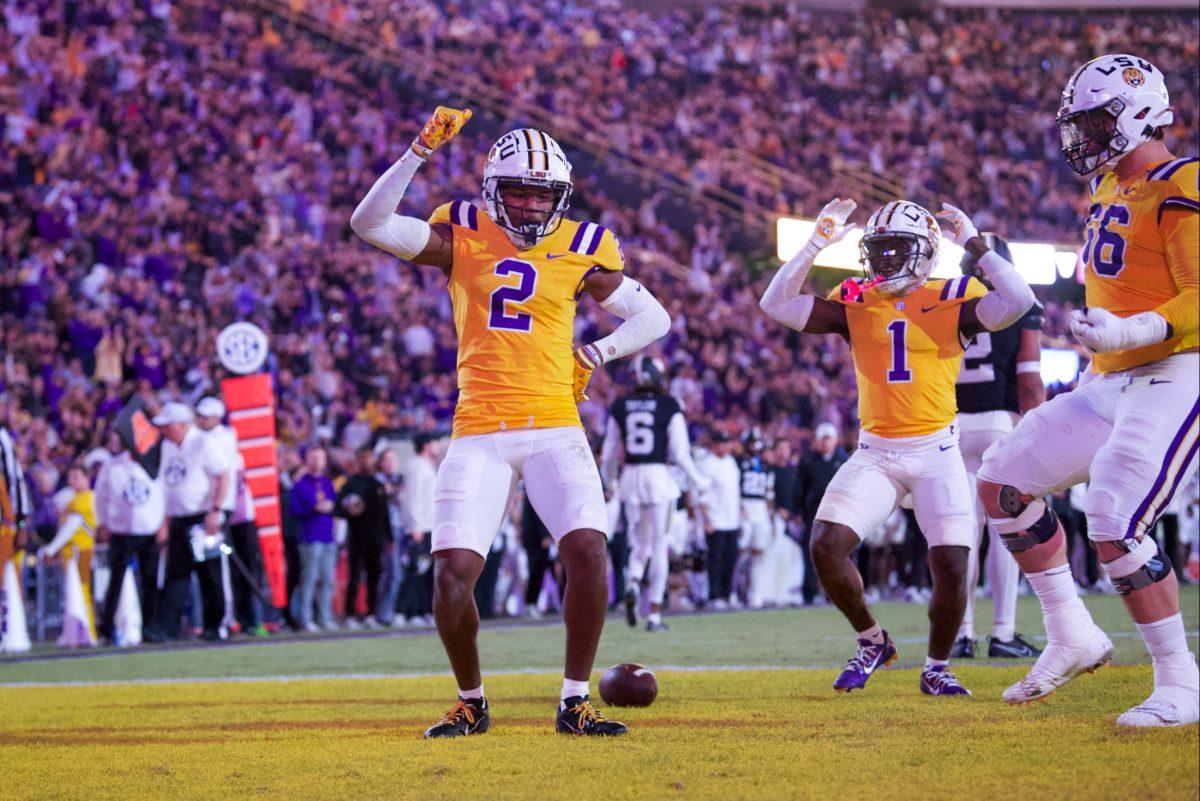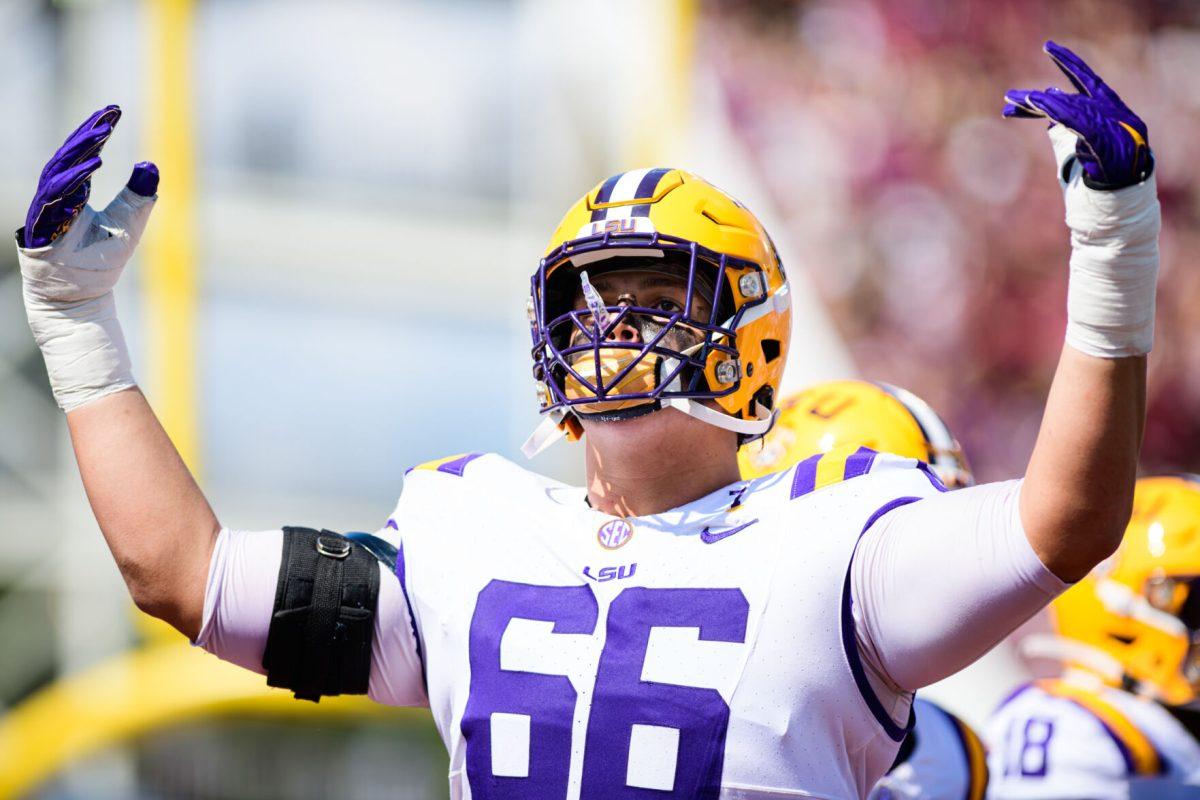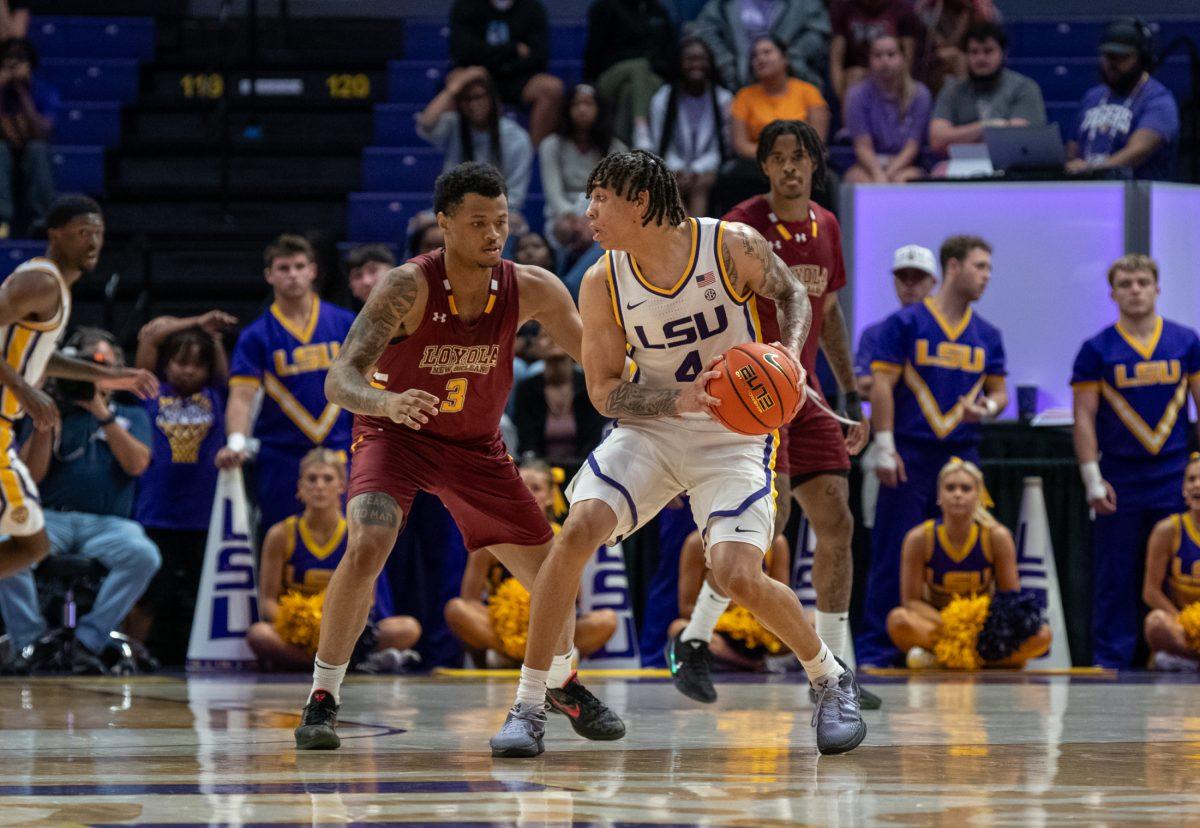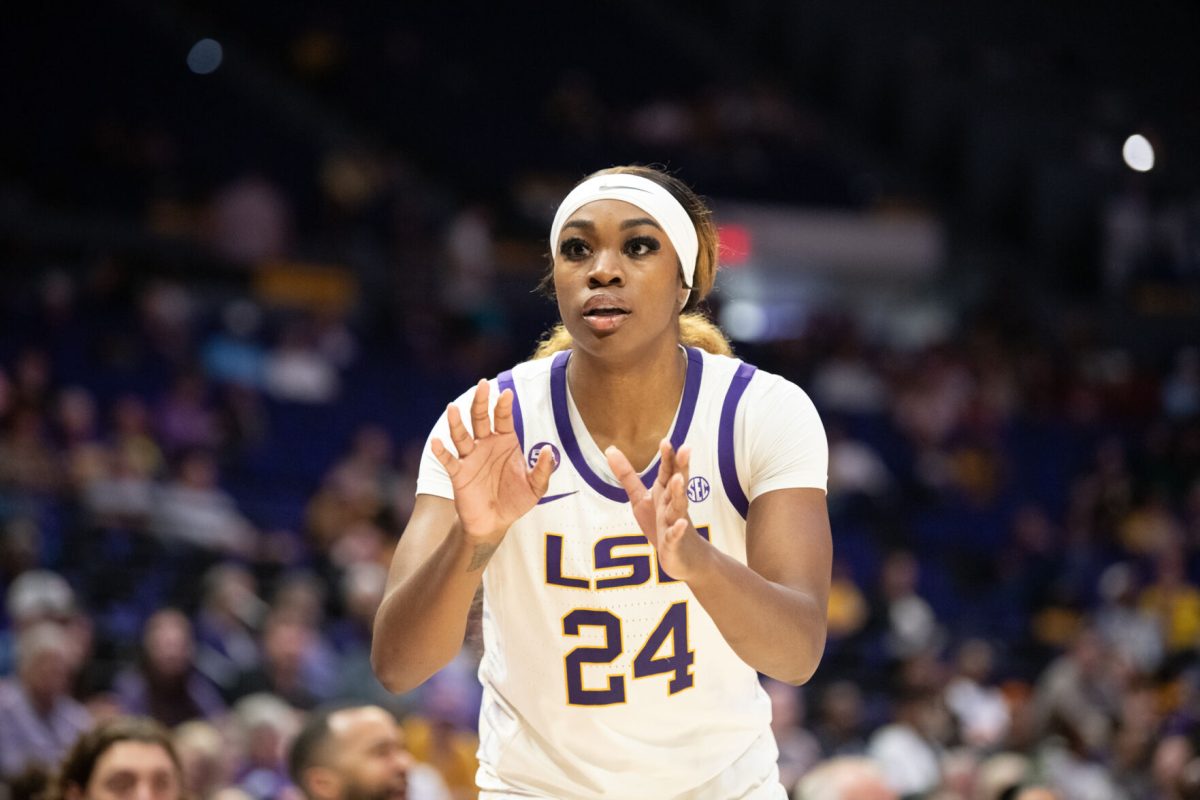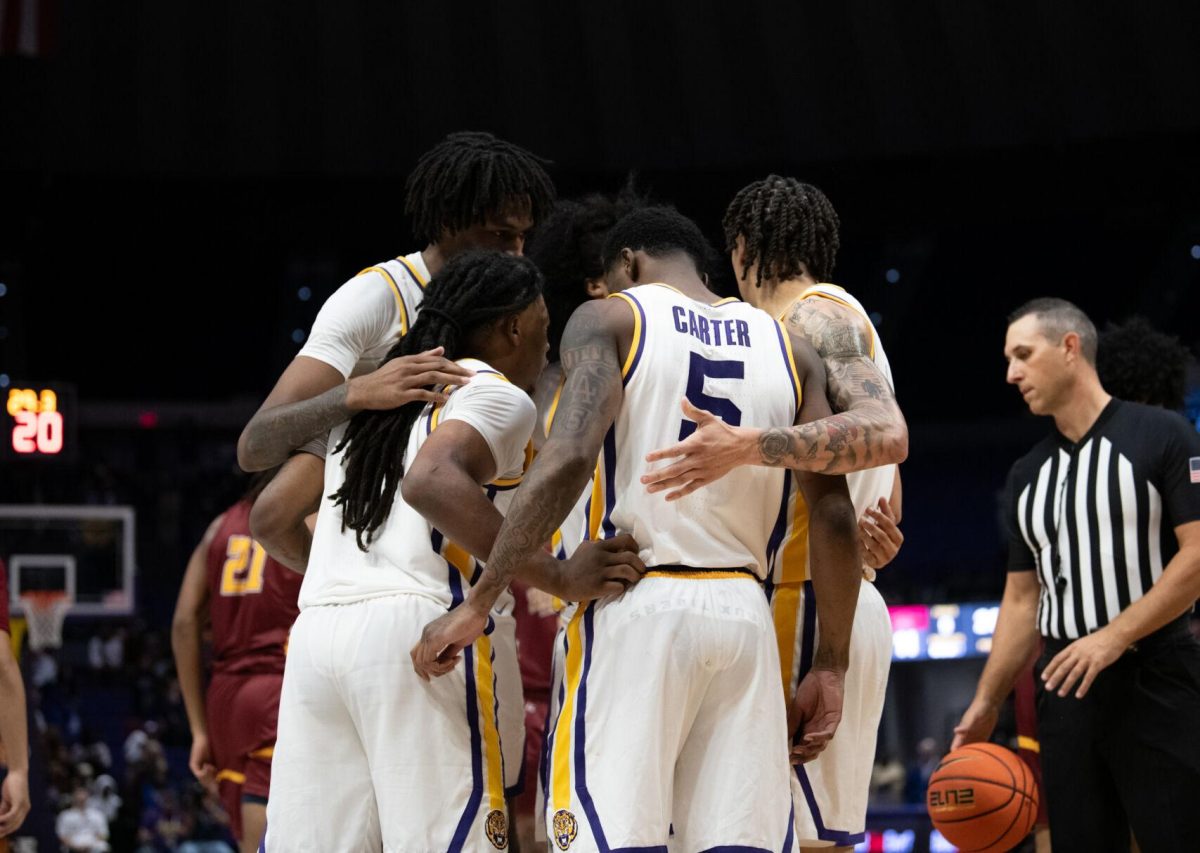“Do you want to be elite?” Brian Kelly asked his team after Saturday’s 42-28 loss to rival Alabama.
Kelly hammered this point to his team: They played a good game, but good isn’t enough to beat elite teams.
Alabama’s victory led to a reckoning of sorts for the Tigers. The program is at a crossroads, with its post-season aspirations gone.
LSU has nestled itself in the standings as a formidable team that is clearly a step above the cellar-dwellers of the SEC West but a notch below the best.
Good isn’t enough — not on the field or on the recruiting trail, where LSU desperately needs an infusion of talent, particularly on the defensive side.
Nine-win seasons aren’t enough.
With the loss to Alabama, once again the result of a hapless defensive performance, elite has gone out the window for LSU this season.
The same is true for another storied SEC program: Florida.
In Year 2 under Billy Napier, the Gators are a disappointing 5-4. Elite is the expectation at Florida, but the team has seemingly fallen behind. It falls short not only to SEC East powerhouse Georgia but also to lesser programs Tennessee, Missouri and Kentucky.
Napier was expected to inject life into the Florida program after a successful run as the head coach at UL-Lafayette, but his first two years have been underwhelming. The Gators finished 6-7 a year ago.
This year, Florida is overall a middling team in every category, ranking No. 45 in total defense and No. 50 in total offense.
Last year, the team was wildly inconsistent, but the play of Anthony Richardson at least produced explosive highs to counteract some of the disappointing lows. This year, the Gators are merely middle-of-the-road.
That makes Florida a team that, on paper, LSU should beat. LSU has by far the most dominant unit in the game with its nation-leading offense, and quarterback Jayden Daniels is likely to play despite entering concussion protocol earlier in the week.
Florida has recently struggled to hold down even average offenses, having allowed Arkansas to score 39 points last week. If LSU scores the points that it normally does and makes marginal improvements to hold down the Gators’ vanilla offense, the Tigers should win.
Defensive competence, however, is far from a given for LSU this year, even if the Tigers have done well against some of the weaker offenses that they’ve faced in Mississippi State and Auburn.
The Alabama loss saw a resurgence of the nagging issues that looked to have lessened in the prior weeks.
In a sense, LSU’s opponent on Saturday is itself as much as it is Florida. LSU needs to cut down on mistakes and play up to the level the team and Kelly knows it’s capable of — elite.
Florida’s offense
Florida has been surprisingly pass-heavy this year, mostly as a product of an ineffective rushing attack.
Though the Gators have talented running backs in Trevor Etienne and Montrell Johnson Jr., they’ve been hesitant to lean on the run game behind an offensive line that’s struggled to move defenders.
Florida has produced fewer than 120 rushing yards in all but two of its seven Power 5 matchups.
Wisconsin transfer quarterback Graham Mertz has been solid if unexciting, with 2409 passing yards and 17 passing touchdowns. He ranks No. 5 in the country with a 73.9% completion percentage, but that’s been on a diet of exceedingly easy passes.
The Florida offense has been passive, and a high percentage of its passes are short or behind the line of scrimmage.
That doesn’t mean that LSU should overlook Florida’s passing offense, especially with how the Tigers’ secondary has played this season.
LSU will have to be disciplined in tackling in space, especially with Florida having dynamic receivers in Ricky Pearsall and true freshman Eugene Wilson III and the pass-catching ability of the Gators’ running backs.
Tackling has been an issue for LSU all season, so if Florida is able to make this a track race type of game, it will likely be the result of missed tackles.
Florida’s defense
The Gator defense started the year off hot, but it has a lot of young players in key positions. That’s led to some issues as the team has reached the back half of its schedule. Florida has allowed 30 points in four of its last five games, with the only exception being a 14-point outing against Vanderbilt.
While Florida’s No. 45 ranking in yards allowed is solid, the underlying numbers are concerning. The Gators have allowed six yards per play this season, No. 100 in the nation, as well as an opposing passer rating that’s the 23rd-highest.
They’ve forced just six turnovers, the third fewest in the country, and come up with 16 sacks, No. 95 in the nation. Florida allows big plays but doesn’t make many of its own.
However, Florida’s defense is on an upward trajectory overall. Last season, it was abysmal, but the unit has improved slightly and is now developing future stars.
None the less, it’s likely that Florida won’t be able to stop LSU; even Alabama’s vaunted defense gave up 28 points in three quarters before Daniels’ exit. Even if they were playing without Daniels, the Tigers have the talent at the skill positions to find plenty of success on offense.
The result of the game, then, will come down to how well LSU can apply the focus needed to make simple plays on defense. Every game for LSU is a question of whether the defense can allow fewer points than the offense can put up, and that will continue against Florida.




